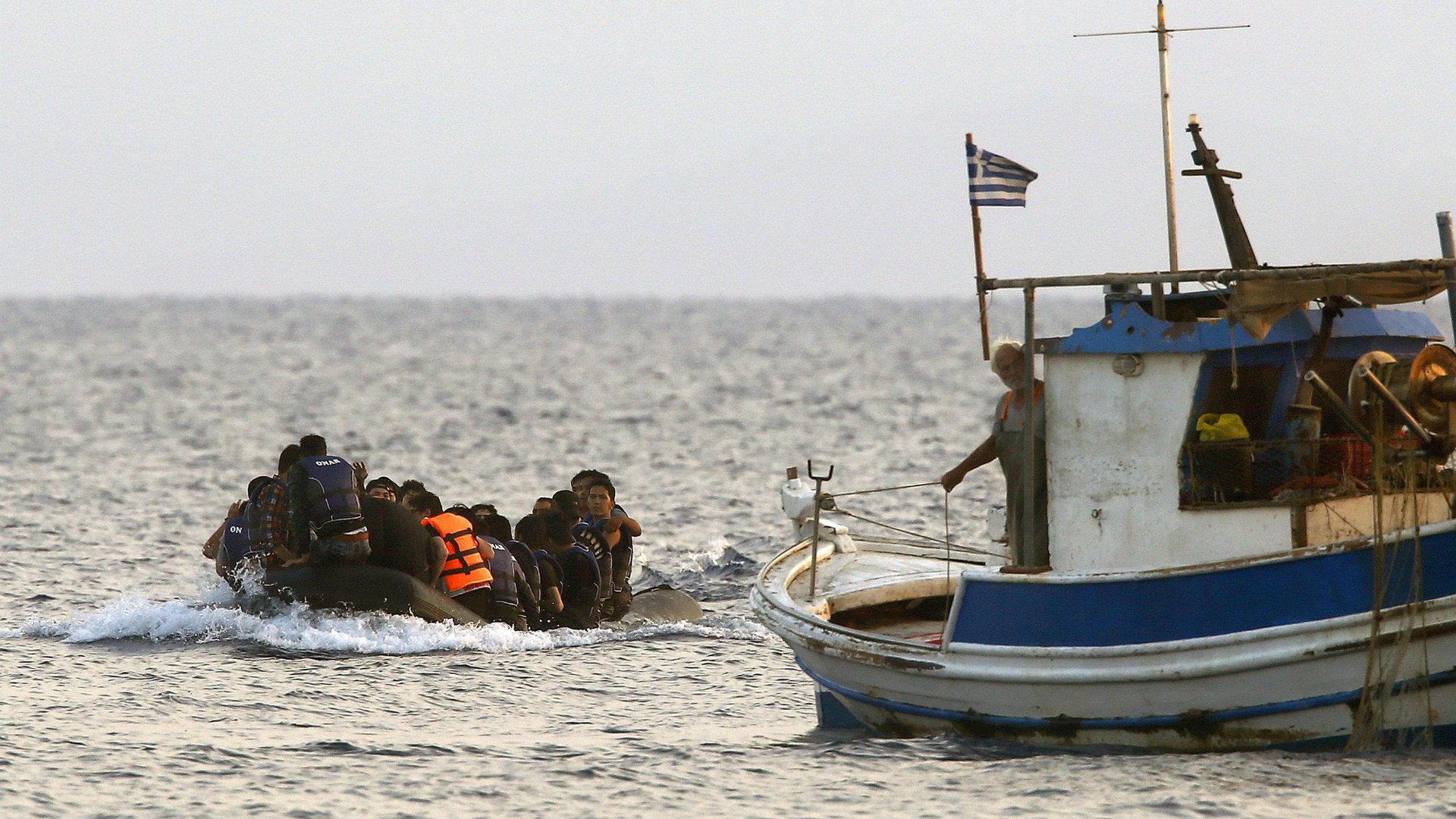More migrants reached Greece last month than during the whole of 2014
It is a “crisis within a crisis.” That’s how prime minister Alexis Tsipras describes the massive influx of migrants to Greece, straining the resources of a country that is already strapped for cash.


It is a “crisis within a crisis.” That’s how prime minister Alexis Tsipras describes the massive influx of migrants to Greece, straining the resources of a country that is already strapped for cash.
Nearly 50,000 migrants came to Greece in July—more than the whole of 2014. So far this year, more than 130,000 illegal border crossings have been made in Greece, according to Frontex, the EU’s border agency. The vast majority of migrants come from Syria and Afghanistan, seeking asylum in the EU after a treacherous journey in overcrowded, makeshift boats across the eastern Mediterranean—now the busiest route for people seeking a better life in Europe:
Even Greece’s shattered economy is better than what Afghans, Syrians, and others leave behind. But most migrants hope to travel further into Europe in search of jobs, stability, and states more receptive to asylum claims. But if they’re caught or rescued in Greece, in most cases they must be processed there.
The UN recently described conditions for migrants in popular Greek landing spots as “total chaos,” with a severe lack of food, sanitation, and shelter. But an EU plan to distribute migrants more evenly across the bloc has stalled, with many countries rejecting proposed quotas.
This weekend alone, the Greek coast guard pulled another 1,400 people out of the sea, according to reports. Tsipras recently called for urgent assistance from the rest of the EU: “This problem surpasses us,” he said.